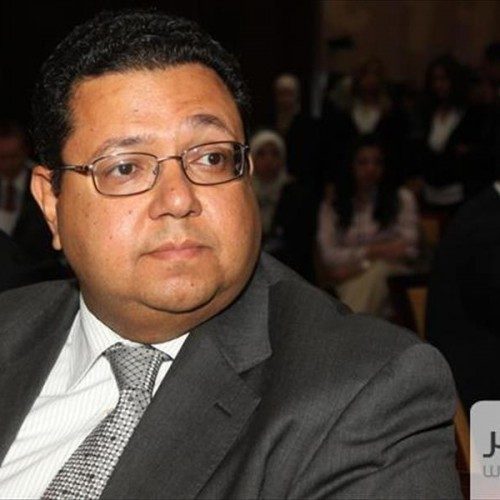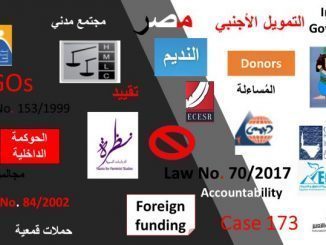
By: Ziad Bahaa Eddin*
We regret that despite the statements repeated by the Egyptian officials about the importance of investment and the need to increase it and improve its climate, the Egyptian government today does not have a clear investment policy or even a vision for its overall economic trend. This is because of the continued implementation of plans and programs that have not been successful over the past two years. So, the result is a continued weakness in investment, productivity, employment, and export, as well as the reluctance of investors to increase their activity in Egypt, despite what the devaluation of the Egyptian currency provided of opportunities for the creation of new projects or the acquisition of existing assets and companies. In my opinion, the turmoil in the Egyptian investment policy is due to the following factors:
• First:
The absence of a clearly defined economic policy as expressed by the contradictions in the government’s program that was submitted to the parliament at the end of last March, the draft budget that was presented for discussion to the parliament this week, and the sectoral policies that have been pursued by different ministries:
It is not clear from the foregoing points whether the State is:
o pursuing an expansionary policy, or an austerity one,
o depending on the investment of the private sector or the public sector,
o working to achieve social justice, or seeking to increase the economic growth as a priority,
o aimed at attracting major international companies or encouraging small and medium-sized national enterprises.
Following the Egyptian economic affair, we find a contradiction in the statements made by officials in pivotal issues, such as putting up the shares of the state-owned enterprises for sale, the expected tax policies, the means of financing the budget deficit, and the needed legislative reforms. This uncertainty in economic policy harms and disrupts the economic development because big and small investors alike are able to cope with the specific data and absorb the costs and burdens that are known in advance, but they cannot deal with the uncertainty that prevents planning and preparedness for the future.
• Second:
The expansion of the role played by the State, including the Armed Forces Engineering Authority (AFEA), in the economic field with a lack of specific controls or adequate transparency:
Although I am in principle not against the State intervention in the economic field when exercising a developmental role or carrying out activities and services that the private sector is not able to do or where citizens need protection from exploitation. However, the intervention of the State today in both big and small enterprises, and crowding out the private sector even in areas that enjoy a relative stability, is a matter that raises doubts that the State could be driven by the desire to control rather than to achieve specific economic and social policies. This intervention by the State may also lead to a more disabling of the existing capacities, the erosion of competitiveness, the closure of factories, threatening the future of workers.
• Third:
Proceeding with policies that lead to a further increase in both the external and internal public debt together with all what this entails of risks, including possible price rises and loading the future generations with heavy burdens:
According to the draft budget submitted to the parliament, the public debt reaches 3.1 trillion pounds, which is almost equal to what is produced by the national economy during one year. As for the budget deficit, the government expects that it will reach 319.5 billion pounds, equal to 9.8% of the GDP, and it plans to finance it through more borrowing. However, the external debt is still in a safe area according to the international standards at about 16.5% of the GDP. But, the increase of the external debt in just two years by about 14%, without calculating the expected debt of Dabaa nuclear power plant and the other projects agreed upon this year, sets off the alarm bells and should not be ignored.
• Fourth:
Insistence on going ahead with the implementation of giant national projects:
Some of these projects may be urgent and useful as it is the case with the project of the development of the Suez Gulf area, while others are not urgent such as the new administrative capital. However, most of these giant projects are mysterious with no sufficient transparency in terms of funding, ownership and the economic and social yield. While the society is suffering from a strong need to invest in the two fields of education and health, in the development of shanty areas and existing cities, and in raising the efficiency of the public services needed by citizens in the areas of public transport, sanitation, and irrigation, however, the state has put the bulk of attention and its limited resources in new major projects, which may have an interest on the long-term, but it does not necessarily represent an urgent priority at the moment.
• Fifth:
Ignoring the problems that investors are suffering from, especially the small investors who are away from the interest of the State and the media:
These problems include the incursion of bureaucracy, the spread of extortion, threats and exploitation by local bodies and dozens of government agencies that hinder the economic activity, interfere in everything, and waste the energy and effort of those seeking to work and produce. The talk about re-correcting and modifying the investment law again, which was spoiled by the amendments of March 2015, would not be feasible as long as the State continues to ignore the real problems experienced by investors, mainly the troubled exchange market, the slow pace of litigation, and the lack of clarity of investment controls for various activities, as well as the difficulty of access to the land (necessary for investment projects), and others.
We are now facing a spiky and dangerous economic situation. In fact, what drives the economic wheel to continue in circulation, production and provision of resources and incomes is only the informal economy, which has rebounded in recent years. However, in the long term, this informal economy will not help to achieve a fair and sustainable economic development. The time has come for the State to reconsider its priorities and open a door for dialogue, understanding and cooperation with the forces of society, including the private sector, investors associations, parties, trade unions, universities and others, and to manage the divergent interests, according to their nature, in the community, so that we can start to get out of the current impasse.
* Ziad Bahaa Eddin is a lawyer and legal expert, a former Deputy Prime Minister, a former Minister of International Cooperation, a former head of investment and financial control bodies, and a member of the Central Bank of Egypt’s Board of Directors.
(Published in Al-Shorouk on Monday, June 27, 2016, and translated for MEO)



